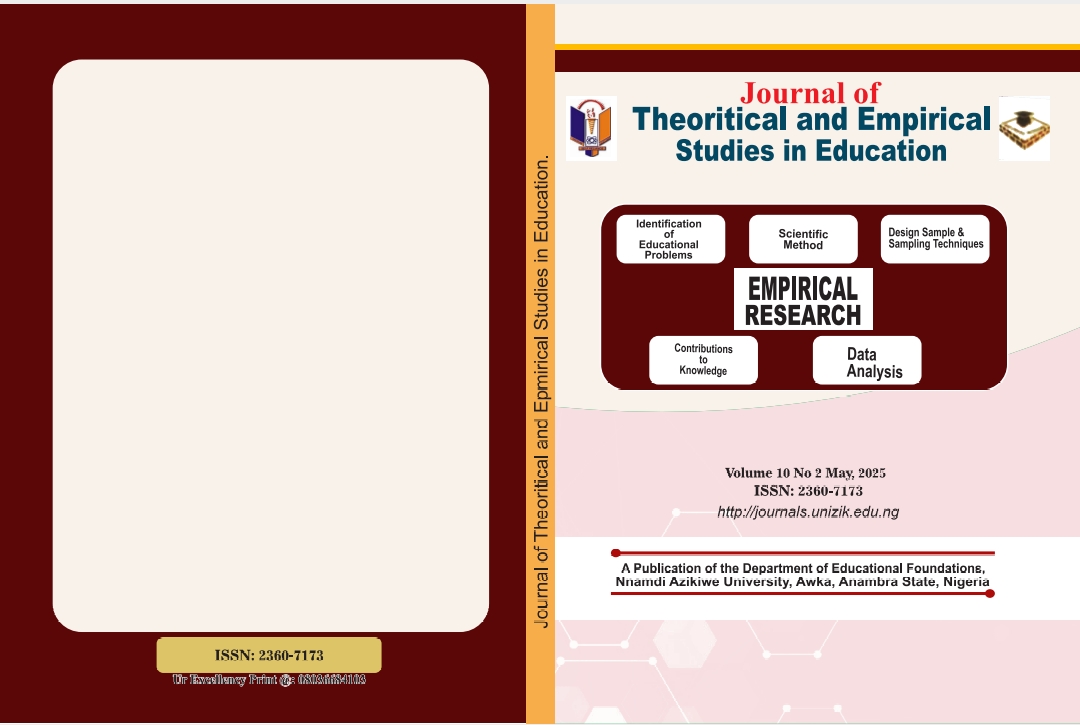GENDER DIVERSITY IN TECHNICAL AND VOCATIONAL EDUCATION IN NIGERIAN COLLEGES OF EDUCATION
CHALLENGES AND OPPORTUNITIES
Keywords:
Gender diversity, Technical and Vocational Education and Training, women in STEM, socio-cultural barriers.Abstract
Gender diversity in technical education remains a critical issue in Nigerian
Colleges of Education, with female participation significantly lower than that of
males. This study explores the challenges and opportunities associated with
gender diversity in technical and vocational education and training (TVET)
programmes using a secondary sources, including relevant texts, journals, official
publications, historical documents, and the internet. It identifies key barriers such
as socio-cultural norms, economic constraints, and institutional challenges that
limit female enrollment in technical disciplines. Findings reveal that traditional
gender roles, financial limitations, and the absence of gender-sensitive policies
continue to discourage female students from pursuing technical education.
Despite these challenges, there are emerging opportunities to enhance gender
diversity in technical education. Initiatives by organizations such as the
Association of Professional Women Engineers of Nigeria (APWEN) aim to
promote the inclusion of women in engineering and technical fields. APWEN
advocates for the education and empowerment of women to contribute
meaningfully to the economy's production sector. The study also highlights other
opportunities for improvement, including policy reforms, financial support,
mentorship programmes, and industry collaborations to promote inclusivity. To
address these challenges, the study recommends enforcing gender-sensitive
policies, providing scholarships, raising awareness, recruiting more female
educators, and creating mentorship programmes. It emphasizes the need for
collective action from policymakers, educators, communities, and industries to
bridge the gender gap in technical education. By fostering a more inclusive
learning environment, Nigerian Colleges of Education can empower more
women to contribute meaningfully to national development and technological
advancement.




